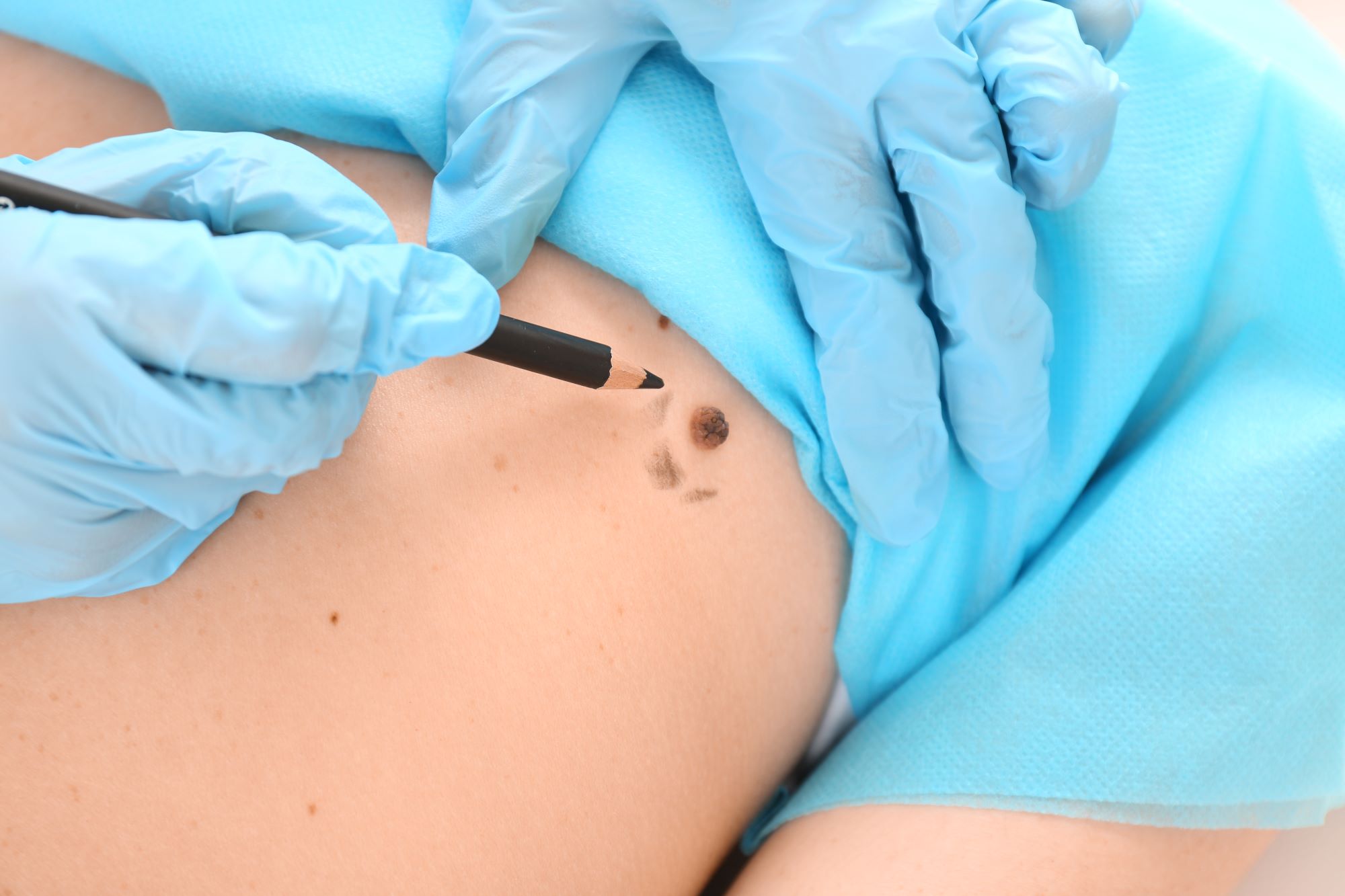“As we age, the stiffness of our skin changes,” explains Ashani Weeraratna, Ph.D., associate director for laboratory research at the Kimmel Cancer Center and professor of oncology at the Johns Hopkins University School of Medicine. “That not only has physical implications, but it also has signaling implications and can lead to increases in new blood vessel growth or disruption of blood vessel function.”
Melanoma is the deadliest form of skin cancer, according to the Melanoma Research Foundation. In 2024, over 200,000 Americans are expected to be diagnosed with melanoma. Older patients are more likely to get melanoma and die from it than younger patients. They experience more recurrences after treatment, and their tumors are more likely to spread, or metastasize, to other parts of the body.
Weeraratna’s laboratory focuses on how age-related changes help melanoma tumors spread and resist cancer therapies. Previous research by Weeraratna and her team has shown that a protein called HAPLN1 helps maintain the structure of the extracellular matrix, a network of molecules and minerals that provide structural support, to keep the skin supple. As people age, they release less HAPLN1, which causes the skin to stiffen.
The new study shows that reduced HAPLN1 indirectly increases ICAM1 levels by causing stiffening, which alters cellular signaling. The increase in ICAM1 contributes to angiogenesis, or the growth of new blood vessels that supply the tumors with nutrients and help them grow. The blood vessels are also leakier, making it easier for tumor cells to escape from the initial tumor site and spread to distant areas of the body.
Treating older mice with melanoma with drugs that block ICAM1, however, prevents these changes, shrinking their tumors and reducing metastasis, Weeraratna and her colleagues demonstrated. They are now studying ICAM1’s activities to develop more precise ways of targeting it with drugs, which might lead to new approaches to treating older people with melanoma.
The discoveries might also lead to new approaches to treating other age-related cancers. Previous therapies targeting growth factors that contribute to angiogenesis have failed in many tumor types, including melanoma. But ICAM1 provides a promising new target.
“We know that age-related angiogenesis is important in many different cancers and multiple aspects of health and disease,” says Weeraratna, who is also the E.V. McCollum Chair of Biochemistry and Molecular Biology at the Johns Hopkins Bloomberg School of Public Health and a Bloomberg Distinguished Professor. “Finding a new way to target that in different tumor types could have a big impact.”
Learning more about ICAM could also have important implications for understanding wound healing in older adults. Angiogenesis is essential in healing wounds not only in the skin, but also in the cardiovascular system and brain, Weeraratna says. As a result, the lab’s discoveries could have important implications for understanding age-related changes that may contribute to cardiovascular disease or strokes.
“Understanding angiogenesis in the context of aging is important,” she says.
Study co-authors were Gloria E. Marino-Bravante, Alexis E. Carey, Laura Hüser, Agrani Dixit, Vania Wang, Supeng Ding, Rahel Schnellmann, Luo Gu and Yash Chhabra of Johns Hopkins. Other authors were from the University of Pennsylvania and Duke University.
The study was supported in part by the National Institutes of Health (grants P01CA114046, U01CA227550 and R01CA232256 to Weeraratna).
Weeraratna is on the board of ReGAIN Therapeutics. This relationship is managed by The Johns Hopkins University in accordance with its conflict-of-interest policies.
As with anything you read on the internet, this article should not be construed as medical advice; please talk to your doctor or primary care provider before changing your wellness routine. This article is not intended to provide a medical diagnosis, recommendation, treatment, or endorsement. These statements have not been evaluated by the Food and Drug Administration.
Content may be edited for style and length.
References/Sources/Materials provided by:
Questions about this news release should be directed to the media contact: Amy Mone at Johns Hopkins Medicine
https://www.hopkinsmedicine.org/kimmel-cancer-center
https://www.hopkinsmedicine.org/som/




